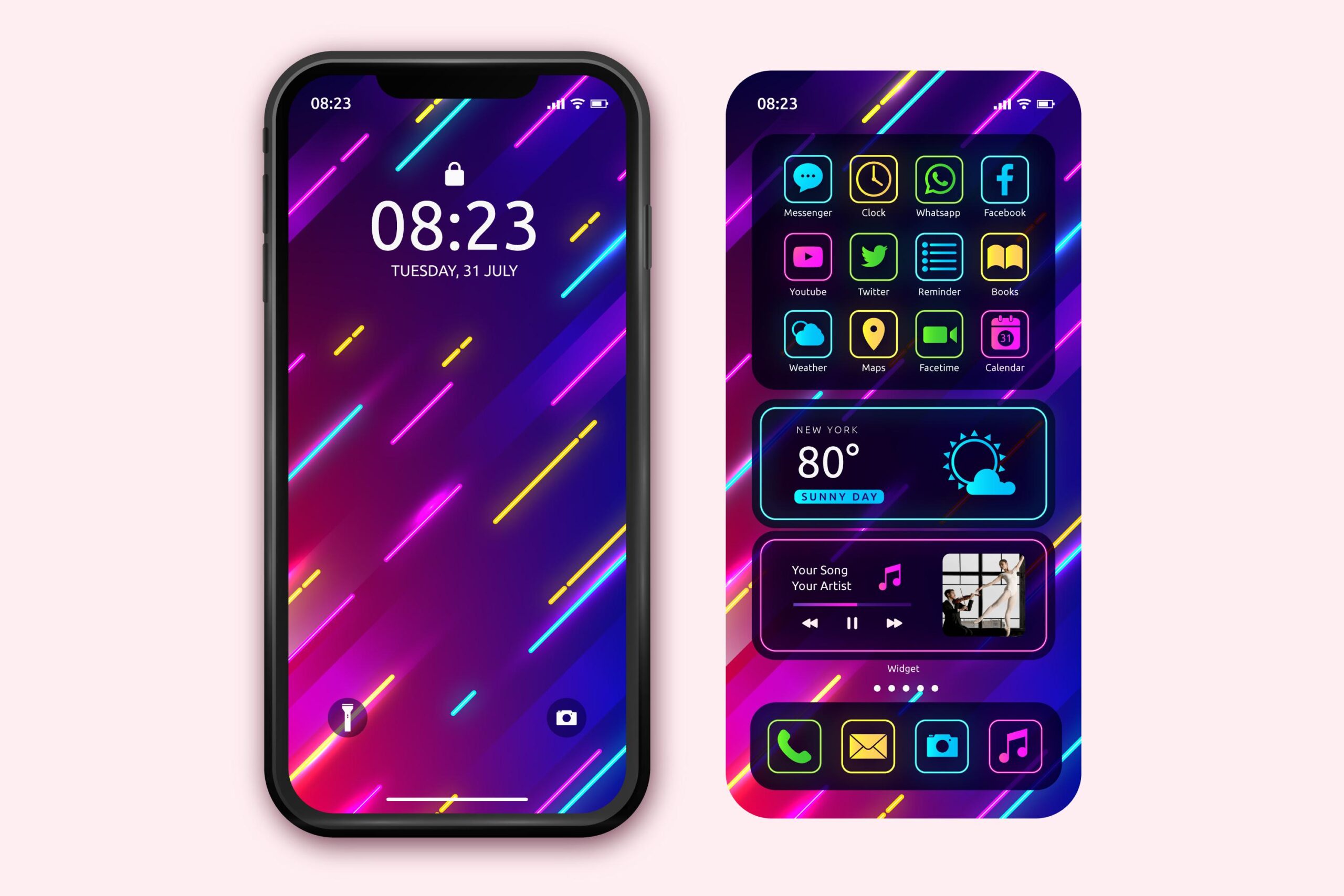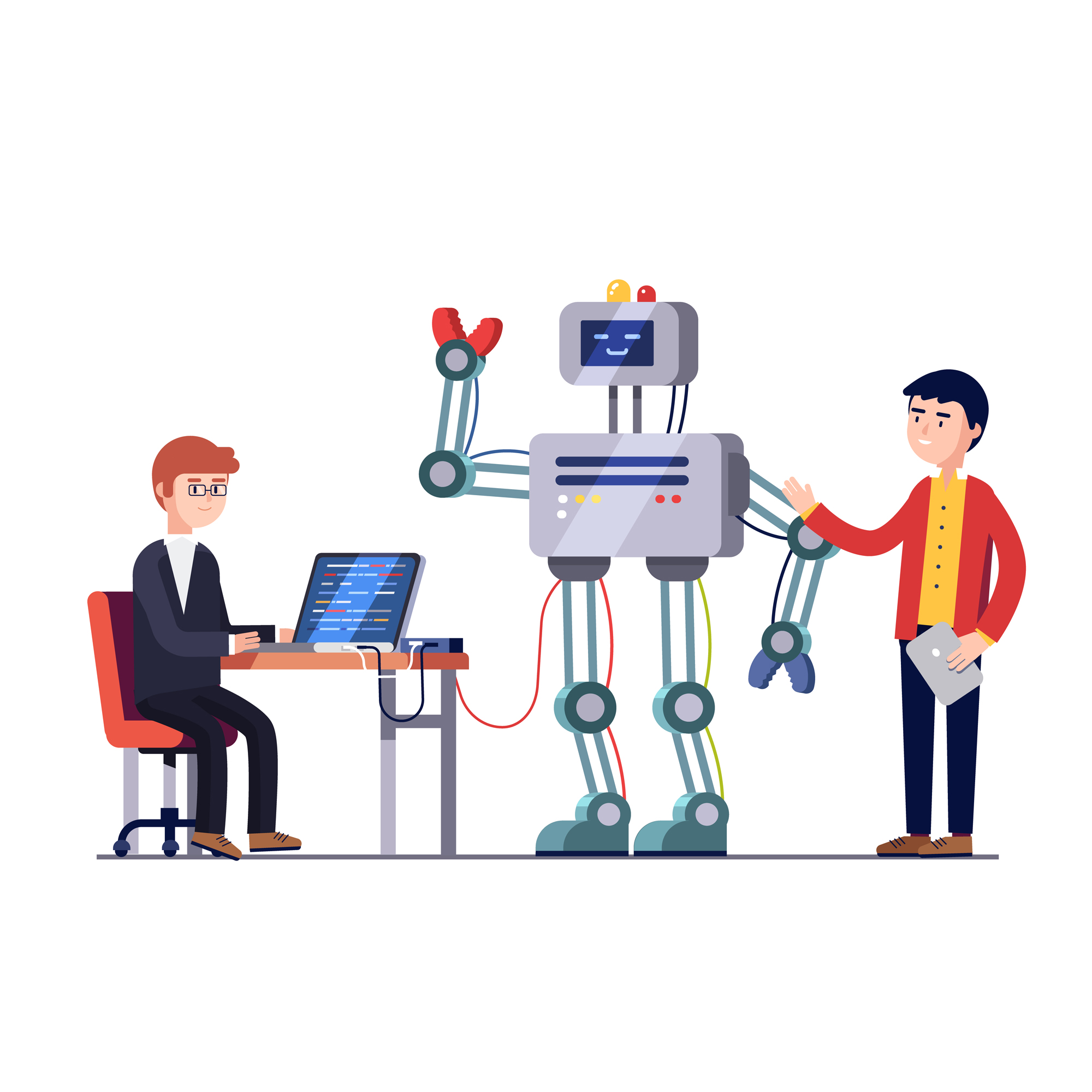Introduction
The mobile app industry is in a constant state of evolution, driven by rapid technological advancements and ever-changing user expectations. As we venture into 2025, the landscape of mobile app development is set to undergo significant transformations, influenced by emerging trends and technologies. Understanding these trends is crucial for businesses and developers aiming to stay ahead in the competitive market. This article delves into the future of mobile app development, highlighting the key trends and technologies to watch in 2025.
Table of Contents
- The Rise of 5G Technology
- Artificial Intelligence and Machine Learning Integration
- Augmented Reality (AR) and Virtual Reality (VR) Expansion
- The Growth of Internet of Things (IoT)
- Blockchain Technology in App Development
- Increased Focus on App Security
- The Surge of Instant Apps
- Progressive Web Apps (PWAs)
- Wearable App Integration
- Beacon Technology
- Voice Technology and Voice Search
- Cloud-Based Mobile Apps
- Conclusion
- FAQs
1. The Rise of 5G Technology
5G technology is no longer a distant dream; it’s rapidly becoming a reality. Offering unprecedented speed and connectivity, 5G is poised to revolutionize mobile app development. The enhanced speed and lower latency provided by 5G will lead to the creation of more sophisticated and responsive apps. Developers can now build apps that require real-time data processing, such as augmented reality (AR) and virtual reality (VR) applications, with minimal latency issues.
2. Artificial Intelligence and Machine Learning Integration
Artificial Intelligence (AI) and Machine Learning (ML) continue to make significant strides in mobile app development. These technologies enable apps to provide personalized experiences, predictive analytics, and intelligent automation. In 2025, we can expect AI and ML to be integral components of mobile apps, enhancing functionalities like voice assistants, chatbots, and recommendation engines. Apps will become smarter, learning from user interactions to deliver more tailored experiences.
3. Augmented Reality (AR) and Virtual Reality (VR) Expansion
AR and VR technologies are no longer confined to gaming and entertainment. In 2025, these technologies will see broader applications across various sectors, including healthcare, education, retail, and real estate. AR apps will allow users to visualize products in their environment before making a purchase, while VR will provide immersive training and educational experiences. The integration of AR and VR will elevate user engagement and offer innovative solutions to complex problems.
4. The Growth of Internet of Things (IoT)
The Internet of Things (IoT) continues to grow, connecting more devices and enabling seamless communication between them. Mobile apps will play a pivotal role in managing and controlling IoT devices, providing users with centralized control over their smart homes, wearable devices, and more. The integration of IoT with mobile apps will lead to enhanced convenience, improved efficiency, and better user experiences.
5. Blockchain Technology in App Development
Blockchain technology is making its way into mobile app development, offering enhanced security, transparency, and decentralization. In 2025, blockchain will be utilized in various applications, including secure transactions, supply chain management, and identity verification. Mobile apps leveraging blockchain will provide users with secure and immutable records, ensuring data integrity and reducing fraud.
6. Increased Focus on App Security
With the increasing number of cyber threats, app security is a top priority for developers in 2025. Ensuring that mobile apps are secure from vulnerabilities is essential to protect user data and maintain trust. Developers will implement advanced security measures, such as end-to-end encryption, secure authentication, and regular security audits, to safeguard apps from potential breaches.
7. The Surge of Instant Apps
Instant apps are gaining popularity due to their ability to provide users with a seamless experience without requiring installation. These lightweight versions of apps allow users to access core functionalities instantly, reducing friction and improving user engagement. In 2025, more businesses will adopt instant apps to attract and retain users, offering them quick and convenient access to their services.
8. Progressive Web Apps (PWAs)
Progressive Web Apps (PWAs) combine the best of web and mobile apps, providing a reliable, fast, and engaging user experience. PWAs are gaining traction due to their ability to work offline, load quickly, and deliver push notifications. In 2025, we can expect an increase in the adoption of PWAs as businesses seek to provide a unified experience across multiple platforms without the need for separate native apps.
9. Wearable App Integration
Wearable devices, such as smartwatches and fitness trackers, are becoming increasingly popular. Mobile apps that integrate with wearables will provide users with valuable insights and personalized experiences. In 2025, we will see more apps designed to work seamlessly with wearable devices, offering features like health monitoring, activity tracking, and real-time notifications.
10. Beacon Technology
Beacon technology is transforming how businesses interact with customers. By using Bluetooth Low Energy (BLE) signals, beacons can send targeted messages and notifications to users’ smartphones when they are in close proximity. In 2025, beacon technology will be widely used in retail, hospitality, and tourism to enhance customer experiences and provide personalized offers.
11. Voice Technology and Voice Search
Voice technology is rapidly gaining popularity, with voice assistants like Siri, Alexa, and Google Assistant becoming integral parts of our daily lives. In 2025, voice technology will play a significant role in mobile app development. Apps will increasingly incorporate voice search and voice commands, providing users with a hands-free and convenient way to interact with their devices.
12. Cloud-Based Mobile Apps
Cloud technology is revolutionizing mobile app development by providing scalable and cost-effective solutions. Cloud-based apps offer numerous benefits, including data storage, processing power, and seamless synchronization across devices. In 2025, more developers will leverage cloud technology to build robust and scalable apps that can handle large amounts of data and deliver superior performance.
13. Conclusion
The future of mobile app development is brimming with exciting possibilities, driven by advancements in technology and evolving user demands. As we navigate through 2025, staying abreast of the latest trends and technologies is crucial for businesses and developers aiming to remain competitive. From the rise of 5G and AI integration to the expansion of AR/VR and blockchain, the mobile app landscape is set to undergo significant transformations. Embracing these trends will enable businesses to deliver innovative and engaging experiences to their users, ensuring sustained growth and success in the dynamic digital world.
FAQs
Q1: What is the significance of 5G technology in mobile app development?
A1: 5G technology offers unprecedented speed and connectivity, enabling the development of more sophisticated and responsive apps. It allows for real-time data processing, making it ideal for applications like AR and VR.
Q2: How are AI and ML transforming mobile apps?
A2: AI and ML are making apps smarter by providing personalized experiences, predictive analytics, and intelligent automation. These technologies enhance functionalities like voice assistants, chatbots, and recommendation engines.
Q3: What are the benefits of integrating AR and VR into mobile apps?
A3: AR and VR provide immersive and interactive experiences, enhancing user engagement. They are used in various sectors, including healthcare, education, retail, and real estate, offering innovative solutions to complex problems.
Q4: How does IoT integration benefit mobile apps?
A4: IoT integration allows mobile apps to manage and control connected devices, providing users with centralized control over their smart homes, wearables, and more. It enhances convenience and efficiency.
Q5: What role does blockchain play in mobile app development?
A5: Blockchain technology offers enhanced security, transparency, and decentralization. It is used in applications like secure transactions, supply chain management, and identity verification, ensuring data integrity and reducing fraud.
Q6: Why is app security crucial in 2025?
A6: With the increasing number of cyber threats, ensuring app security is essential to protect user data and maintain trust. Developers implement advanced security measures to safeguard apps from potential breaches.
Q7: What are instant apps, and why are they popular?
A7: Instant apps are lightweight versions of apps that provide users with a seamless experience without requiring installation. They offer quick access to core functionalities, reducing friction and improving user engagement.
Q8: What are Progressive Web Apps (PWAs)?
A8: PWAs combine the best of web and mobile apps, offering a reliable, fast, and engaging user experience. They work offline, load quickly, and deliver push notifications, providing a unified experience across multiple platforms.
Q9: How are wearable apps evolving?
A9: Wearable apps integrate with devices like smartwatches and fitness trackers, offering features like health monitoring and activity tracking. They provide users with valuable insights and personalized experiences.
Q10: What is the impact of beacon technology on businesses?
A10: Beacon technology uses BLE signals to send targeted messages and notifications to users’ smartphones when they are nearby. It enhances customer experiences and provides personalized offers, particularly in retail, hospitality, and tourism.
Q11: How is voice technology shaping mobile app development?
A11: Voice technology enables hands-free interaction with devices through voice search and commands. It enhances convenience and accessibility, becoming an integral part of mobile apps.
Q12: What are the benefits of cloud-based mobile apps?
A12: Cloud-based apps offer scalable and cost-effective solutions, providing data storage, processing power, and seamless synchronization across devices. They deliver superior performance and handle large amounts of data efficiently.











